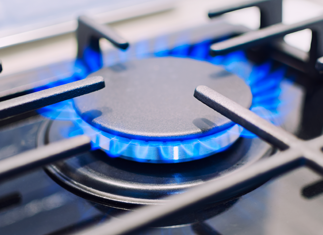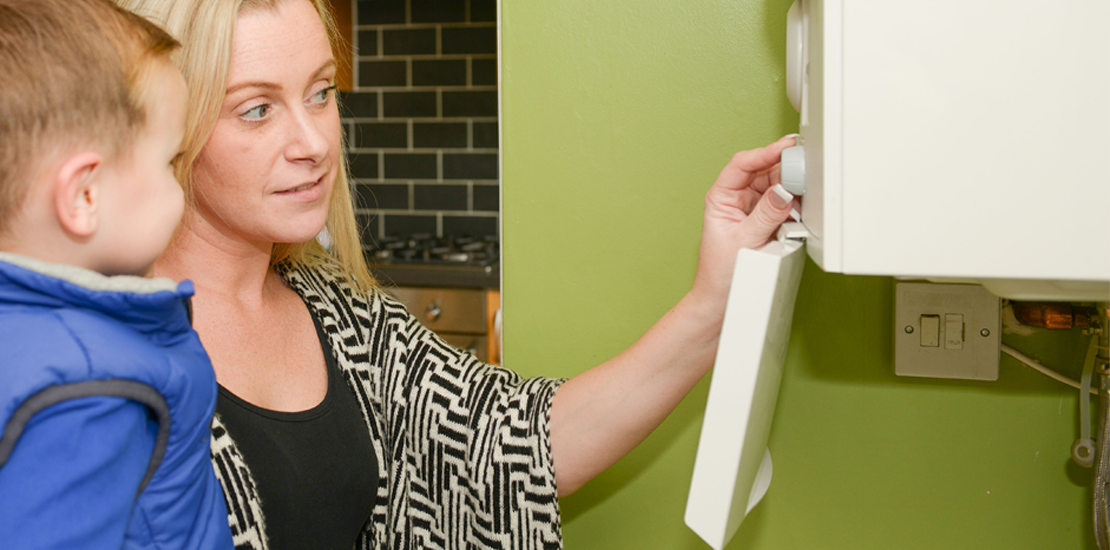
Advice and Support
What to do if you are struggling with your energy bills
As of July 2024, the number of UK households in fuel poverty is 5.6 million. The typical annual energy bill in October 2021 was £1,277 and it’s now around £1,568. The total energy bill is not capped – it’s the price per unit. If you use more than the typical amount, you will pay more for your energy bills. Anyone reliant on a standard variable or default tariff or coming to the end of their fixed term has seen or will see a huge increase in their energy bills.
Below are actions you can take if you’re struggling with your energy bills. You might also want to look at our Additional Help page for support available from other organisations and our wide selection of resources and guides.
 Contact your energy supplier
Contact your energy supplier
When you’re having any issues paying your energy bills or you’re worried about falling into debt, the first step is always to get in touch with your energy supplier. If they know you’re having problems, they are required to work with you to find a solution. For example, they can help you to set up an affordable debt repayment plan and or change your payment method to better suit you. To find out who your electricity supplier is contact your network. For your gas supplier you can use the Find My Supplier search tool.
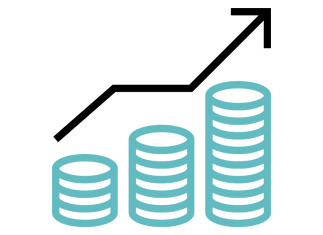
Maximise your income
If you’ve been finding it difficult to afford your energy bills, it’s essential you access all the financial support you’re entitled to. Make sure you are claiming the correct benefits – this could increase your income as well as make you eligible for other types of assistance. You can check your entitlement yourself using a free online benefits calculator, or take advice from your local Citizens Advice or call the Citizens Advice Consumer Helpline on 0808 223 1133 (textphone users call 18001 0808 223 1133) (call charges may apply).
Depending on your circumstances, the Warm Home Discount rebate in England and Wales could give you an extra £150 credit on your electricity bill. To be eligible for the £150 rebate you need to be supplied by one of the participating energy suppliers. Not all suppliers are part of the scheme. To check eligibility visit the Gov.uk eligibility checker For people who are eligible, this money will be automatically credited to customers’ accounts October and March. If you were expecting to receive a rebate and have not received it by mid January 2023 then you can call the helpline 0800 731 0214.
The Winter Fuel Payment is an annual payment of between £100 and £300 to help older people with the cost of keeping warm in winter. Payments are automatic between November and December to older people who have claimed it before or are in receipt of State Pension or other specific benefits. Other older people will need to apply for it. For more information call the Winter Fuel Payments helpline on 03459 151515 or text phone 0345 6060285.
The Cold Weather Payment is paid to eligible households on means tested benefits in areas where ‘exceptionally cold weather’ is forecast or has occurred. Automatic payments amount to £25 per qualifying week between 1 November and 31 March.
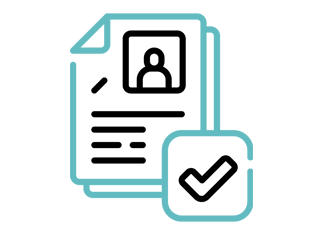
Sign up to the Priority Services Register
The Priority Services Register is a system that energy companies use to make sure the correct support is given to their most vulnerable customers. You can sign up to it to receive extra help from your energy supplier as well as from the company that operates the local energy distribution network. You’re eligible to receive the services available if you’re a pensioner, are disabled or suffer from a long-term medical condition. You also qualify if you have a hearing or visual impairment or additional communication needs.
Each energy supplier and network operator maintains its own register and a wide range of support is available including:
- Information provided in accessible formats
- Advance notice of planned power cuts
- Identification scheme
- Password protection and nominee scheme for a family member or carer on behalf of the customer
- Priority support in an emergency
- Arrangements to ensure that it is safe and practical for the customer to use a prepayment meter
- Meter reading services
Contact your gas/electricity supplier and distribution network operator for more information and to register. If you are not sure who your network operator is, you can use the Energy Network Association handy search tool.
The UK Government has announced a series of cost of living support payments. Find more information at www.gov.uk/helpforhouseholds or a summary is available on our Cost of Living and Discretionary Support page.
As well as the Cost of Living Support, local authorities across England and Wales may have discretionary support funds available.
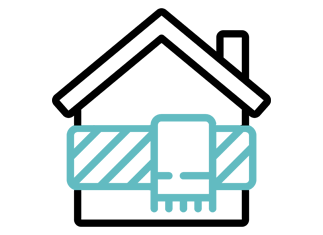 Make your home more efficient
Make your home more efficient
Making your home as energy efficient as possible is the best way to reduce your costs and keep your home feeling warmer. There are some low-cost actions you can take yourself such as:
- Draught-proofing can be a cheap way of making your home warmer, products are available at your local DIY store.
- Radiator reflectors behind your radiators can help keep more of the heat coming into the room.
- Use thermal underlay beneath carpets and close curtains at dusk to keep more heat in.
Loft and cavity wall insulation can also make a big difference to bills and comfort, as can replacing an old inefficient boiler. You may be eligible for free or discounted insulation or heating measures – contact your energy supplier and see if you qualify for the Energy Company Obligation (ECO) or your local authority and ask about any energy efficiency schemes operating in your area.
For more information on what improvements might help the energy efficiency in your home take a look at www.gov.uk/improve-energy-efficiency.
You can also see what grants might be available by visiting https://www.gov.uk/government/collections/find-energy-grants-for-you-home-help-to-heat
If you rent your home, then by law landlords must ensure it is safe and habitable. If you are worried your privately rented accommodation is not safe or habitable, you can contact your local authority’s Environmental Health team who can assess the property for health and safety hazards and require your landlord to make improvements out of their own funds.
In Wales, the Welsh Government’s Nest scheme also offers free, impartial advice and, if you are eligible, a package of free home energy efficiency improvements such as a new boiler, central heating or insulation. Call Nest on 0808 808 2244 or visit nest.gov.wales to find out more.
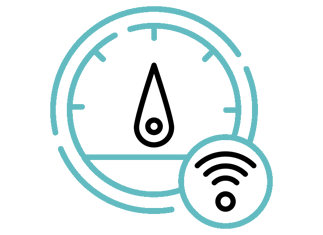 Changing the way you use energy
Changing the way you use energy
Making small changes to the way you think and use your energy can often have a big impact on bills. But it is important that you use the energy you need to keep warm, safe and healthy at home.
If you have a combi boiler you may be able to save money simply by changing the flow temperature. Take a look at the Nesta Money Saving Boiler Challenge for guidance on whether this might apply to you and how you might be able to make some savings.
Take a look at our leaflet ‘Electricity Consumption in the Home’ to see how much appliances might be costing you and how you might be able to cut costs. Or visit Energy Savings Trust for more useful tips. The Government’s ‘It All Adds Up’ campaign also includes helpful advice.
Taking regular meter readings and submitting them to your energy supplier helps you to keep your bills accurate. If you receive a bill and it has an ‘E’ marked against the meter reading, then this means it is estimated by your supplier. You may not be paying the right amount for your energy. Estimated readings can lead to large unexpected bills, so regularly submit accurate readings. You can also ask your supplier if you can have a smart meter installed. This means that your supplier can take automatic readings and can provide a more accurate bill by having a smart meter fitted.
What to do if your energy supplier goes out of business
If your energy supplier goes out of business, the regulator Ofgem will automatically move you to a new supplier within a few weeks. Don’t try to make any changes to your energy supply until your account is moved to a new supplier. You might find it harder to get any money you’re owed if you switch before this happens.
Wait for your new supplier to contact you and in the meantime:
- Take regular meter readings and a photo of them if you can
- Keep any old bills you have – these can help prove your payment history, credit balance or debt
- Download any bills from your app if you have an online-only account
- Make a note of your account balance – you’ll find this on your most recent statement
Your new supplier will write to tell you when your new account has been set up. You should contact your new supplier if you don’t hear from them within two weeks. Your new supplier will also put you on a new tariff so speak to them to make sure it’s their cheapest deal. If you’re not happy with your new supplier or tariff, you can switch without paying an exit fee.
For more information visit: www.citizensadvice.org.uk/consumer/energy/energy-supply/
problems-with-your-energy-supply/check-whos-taken-over-your-energy-supply/.
Stay safe
Carbon monoxide is a deadly gas. It can’t be seen, smelt, or tasted. The common signs of carbon monoxide are gas flames burning orange or yellow instead of the normal blue, soot stains on or above the appliance and/or coal or wood fires that burn slowly or go out. Carbon Monoxide can be produced by
faulty fuel burning appliances.
Make sure you get appliances such as fires, boilers and gas cookers regularly serviced by a qualified engineer. For gas appliances, engineers must be Gas Safe registered and show proof. You can also install a Carbon Monoxide alarm. You can buy these from DIY stores and supermarkets; they cost around £15 and could save lives.
If you rent your home, by law landlords must carry out an annual safety check and provide you with a Gas Safety Certificate. If you are a homeowner and on certain benefits you may be eligible for a free annual gas safety check. Contact your gas supplier to check your eligibility. If you smell gas call the 24-hour Gas Emergency Hotline on 0800 111 999.
For further information on carbon monoxide safety go to www.co-bealarmed.co.uk.
 Other useful resources
Other useful resources
Our Additional Help page has a range of other support organisations which may be able to help you. Please also take a look at our advice leaflets which are available in a range of languages.
Below you can find a list of the organisations mentioned throughout the leaflet and some other organisations that might be able to help you:
Organisations that can help
Calling advice lines and other services may incur call charges. 0800 and 0808 numbers are free from landlines and mobiles. Standard rates apply for 01, 02 and 03 numbers (typically 9p-13p per minute from landlines and 3p-55p from mobiles depending on your network). However, they‘re usually included in free call packages. See more information at www.gov.uk/call-charges.
Consumer
Citizens Advice Consumer Service
Citizens Advice Consumer Advice Line: 0808 223 1133. You can call the Citizens Advice consumer line for help and support with debt, income maximisation or about your energy bills. Or you can visit their website at www.citizensadvice.org.uk
If you can’t hear or speak on the phone, you can type what you want to say: 18001 then 0808 223 1133.
Debt or money worries
If you are struggling with debt it can be difficult to know where to get help that you can trust.
The Money Helper website, www.moneyhelper.org.uk has a list of free debt advice services that may be able to help including:
Stepchange Debt Charity
www.stepchange.org.uk 0800 138 1111
PayPlan
www.payplan.com 0800 316 1833
National Debtline
www.nationaldebtline.org 0808 808 4000
Income maximisation
You can complete a quick benefits check at home using www.entitledto.co.uk or www.turn2us.org.uk.
If you want some help with checking your entitlement or making a claim then contact your local Citizens Advice or phone Adviceline (England) on 0800 144 8848 / Advicelink (Wales) 0800 702 2020
Emergency food and crisis support
Your local authority should be able to direct you to available crisis support.
To find your nearest food bank visit www.trusselltrust.org.uk/get-help/find-a-foodbank. You will usually need to obtain a food voucher from a local agency. Alternatively contact the free helpline on 0808 208 2138 to speak with a trained Citizens Advice adviser.
If you have a smart phone, sign up to apps like OLIO and TooGoodToGo so you can find if food is being sold at low cost near to you.
Energy efficiency
GOV.UK. Recommendations that could make your property cheaper to heat (England and Wales). Visit www.gov.uk/improve-energy-efficiency for more information.
Energy Saving Trust offers guidance on ways to save energy around the home. Visit the website www.energysavingtrust.org.uk
National Energy Action’s Warm and Safe Homes advice service is available Monday – Friday 10am-12pm on 0800 304 7159. We can provide help with energy bills and warmth.
Other
If you smell gas or suspect a gas leak call the National Gas Emergency Service 24 hours a day on 0800 111 999. If you are D/deaf or hard of hearing a text phone service is available on 18001 then 0800 371 787.
If you have a power cut call the national power cut line on 105.
Most fire services offer a Safe and Well visit. It’s also called a Home Fire Safety visit. It’s especially for people who might be at higher risk such as people with health conditions or young children in the home – contact your local fire service for more information. They will check your home for any fire risks and offer advice and guidance on how to reduce those risks.


